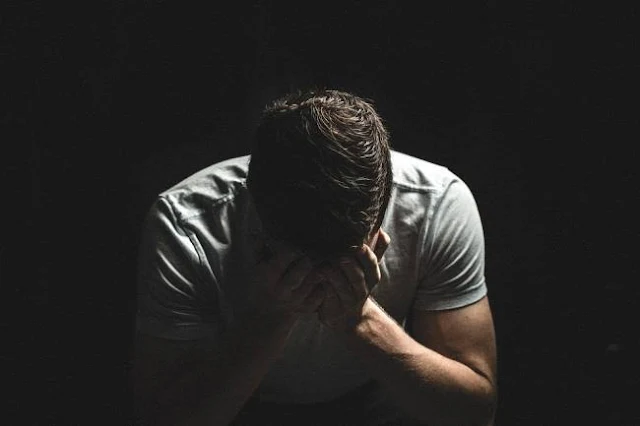No amount of excuse would give reasonableness to the domestic abuse of a spouse by the other.Abuse should be addressed across board and irrespective of gender, because violence against men or women is injustice to all.
The topic of domestic violence against men is one which is largely unspoken, especially in Nigeria.In most cases of domestic abuse,our first instinct is to assume that a man is the perpetrator, while the woman is the victim, even though this could be true in many instances, the issue of violence against men is more rampant than we know.
Domestic violence otherwise known as domestic abuse, spousal abuse, family violence or intimate partner violence,is a type of behavior which involves the abuse of one partner by the other.It could be verbal, sexual or phycological in nature and usually occurs in various forms ranging from threat to harm, physical aggression or assault, emotional abuse among other acts.It also extends to any type of controlling behavior which could potentially harm the health, safety and well-being of it's victim.
Although the subject of domestic violence against men is gaining increasing popularity, it is still treated with less important especially in comparison to violence against women and this could be attributed to a number of reasons,one of which is underreporting of incidence where men are abused by their partners.
The norm, particularly in Nigeria, is that most men hardly report such cases because they fear that they may be perceived as being less masculine.The recent research by BMJ openjournal revealed the "Fear of disclosure" as a problem caused by the society which has placed a burden on men.
In most cases, the male sufferer chooses not to tell anyone because he may feel he has not lived up to the societal notion of manliness or rather the dictates of manly ideas.
Some men stay back in abusive relationships because they are fully committed to their partners, others may be hanging on because they do not want to lose the custody of their children, for some, they persever to a point where they are too emotionally distressed to leave.
Another class of men are those who took steps to seek for help but encounted negative experience and then give up fighting back because the may have stepped out hoping that someone will believe them , but that is not always the case. For the last group, things would have degenerated to a point where the male sufferer doesn't even see himself as a victim, which makes it difficult to help him. With all these barriers and more, we are left to wonder how many more men are silent sufferers of domestic abuse from their partners.
In most cases,the issue of violence against men is largely overlooked due to the immense pressure on them to act like all is well, even when it is not. This makes more men reluctant to draw attention to their domestic abuse situation.the sad fact as at today, women punching, kicking, slapping, sex deprivation and killing their parents are realities that occurs in Nigeria on a regular basis. Social media has further beamed the spotlight on male domestic abuse cases by providing quick access to Proof through the circulation of picture and videos of maltreatued of men by their partners for different reasons.
It would appear that recounting domestic violence from male victim's perspective is quite uncommon as most people are quick to assure that men are not usually known to be at the received end of physical aggression. In a largely patriarchal societies like Nigeria where the male folk are expected to be more dominants due to their physical stream, it can be considered shameful to hear that a man was threatened or beaten by his partner. In comparison to women who are usually encouraged to speak freely when they are trapped in abusive relationships or marriages, men are not known to easily voice out their grievances not even to close friends and relatives. Public ridicule and harsh criticism are other factors withholding men from speaking out.
Domestic abuse of men is just as important as any other gender based violence issue and in addressing it, there are various ways in which the male sufferer could seek for help, the first is to speak up as soon as possible, awareness made through media programs can also help by reminding male victims that they too can get justice.
A good example is the mankind initiative which reassures male victims through it's motto" remember that you are not to be blame, you are not weak and you are not alone".
In Nigeria domestic violence against men was a rarely discussed subject, until in recent years when more men began to speak against it. We must cautiously note that domestic abuse is not about gender,size or physical strength and also need to view domestic violence from a psychological perspective rather than basing it on sociocultural expectation and existing stereotypical norms.
Puting a stop to domestic violence, it is important to squash the lopsided view that it is only weak men that experiences domestic violence, a total reformation of this mentality could also be encouraged by recommending anti-battery values to school curriculums all over Nigeria,as it would inculcate early recognition of the existence of domestic abuse and ways to curb it.
All aspects of Nigerian criminal justice should also be taught to handel domestic violence complains from men with some form of neutrality and open mindedness, more effort and measurs should be put in public domain in order to serve as a deterred to women who have battered and murdered their husbaneds.It is hoped that shedding light on the present realities of domestic abuse of men would balance the scale of violence discussion especially in Nigeria.
Ahmadu Hafsat writes from Zaria,
A student of Mass Communication, ABU Zaria.

